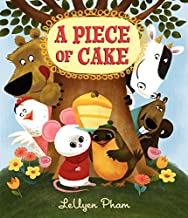Book Choice, Part Three: How Kids Choose
September 16, 2022We want our kids to read. We want them to develop good vocabulary and literacy skills. We'd like them to have good grades and to test well.
But more than anything, what we want is to create well-rounded individuals who think well and know how to make discerning choices. To this end, we don't want book choice simply for the sake of letting kids do whatever they want - we want them to be able to choose wisely.
So first they need to learn the art of choosing!
It would be easy if this were just about getting books of the right "level" to the right readers, but once again, this is far more complex. Kids CAN navigate this level of complexity, though. For one thing, when prior knowledge and interest is activated, they can read books that are higher than whatever level they test at, and for another, if they aren't interested, it doesn't matter if they can technically handle the vocabulary. In addition to failing to account for interest, reading and book levels don't take into account maturity or content, so they should only be used as a loose guide for selection. (In fact, I rarely, if ever, take them into account when matching kids with books).
While that means there's not a list that will suit any given reader, here's a fairly simple guide to book choice for students:
1. What are they interested in? What do they want to read? If they don't know and are just browsing, does the book they've just picked up look interesting? If so, do they know what it's about so that they can know if they're still interested?
2. What are they in the mood for right now? This varies, and that's okay! When I offer a student a book and they hesitate after looking at it, I tell them, "That one isn't calling your name right now. Let's find another one!" I always assure students that turning down a book at any point, whether at the time of choosing or part of the way into the book, is not personal. They shouldn't worry that I'll be offended, and I implore parents to guard against this as well! Even after my assurances, polite students are often reluctant to express their feelings, or they offer apologies if they don't like something, and I have to make very intentional and continual efforts to let them know they don't have to do this.
Part of healthy book choice MUST include the right to say no.
3. Do they understand most of the words and ideas? I encourage students to read a page or two before taking a book so that they can determine this. If they can bypass the words they don't know because their interest moves them forward, then great! This is how they develop vocabulary. But if they're overwhelmed by what they can't understand, it is not helpful to slog through it.
4. Does it give them something to think and talk about? I just spoke with 3rd graders about this recently. After they've read a Dog Man book for the tenth time, they've probably gathered all the thoughts they're going to gather about it, so it's time to choose something else! (They can still read and reread it, of course - we all do that! It's just time to add something else to the mix.) If they can read a book in a few minutes and share excitement for just another few minutes, then they need to add something more challenging to give them MORE thoughts and more excitement to share.
"Have you read that before? If so... "How many times?"
"How easy is that for you?" "Can you tell me what this is about?" (If the answer is no, it's too challenging right now, but I never like to lead with, "Do you think that's too hard for you?" We want kids to be challenged - just not overwhelmed.)
"What made you choose this one?" (Sometimes when they talk through their reasoning, it leads them to confirm that it's a good choice, or it reveals that they didn't think about it and need to!)
The books are out there. There are tools to choose and tools to filter. Let's equip our students now with their own set of tools and strategies for finding the "just-right" sort of books for them!







.png)

0 comments